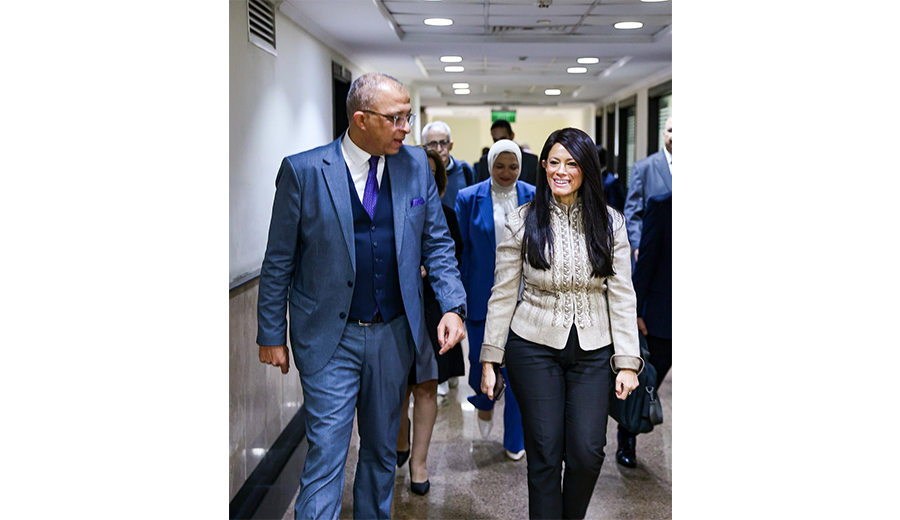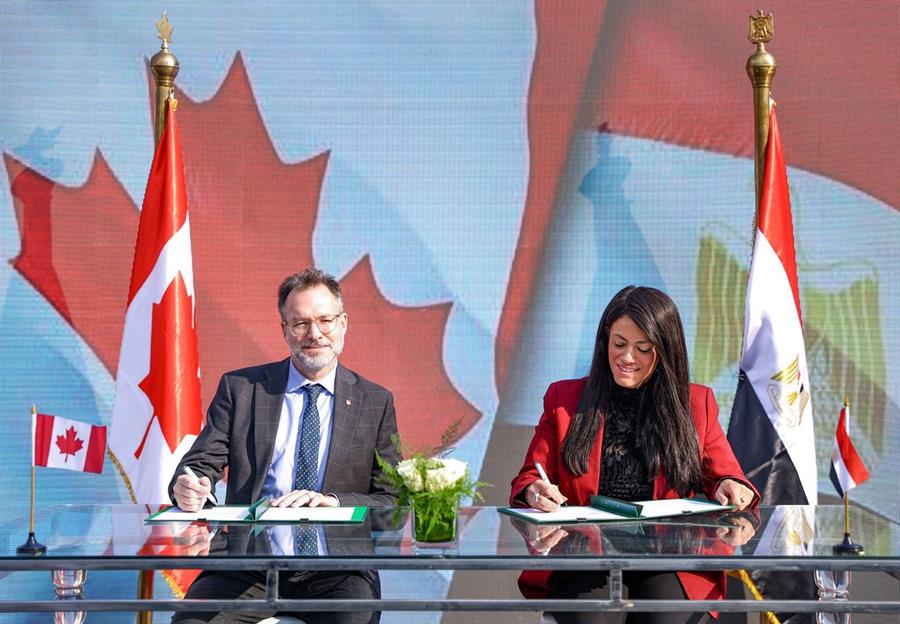Executive Director of NIGSD participates in the policy dialogue of MENA-OECD Governance Program

07 October 2021
Dr. Sherif Sherif, Representative of Egypt in the Public Governance Committee of the Organization for Economic Cooperation and Development (OECD) and Executive Director of the National Institute for Governance and Sustainable Development (NIGSD) participated in a policy dialogue held by the MENA-OECD Governance Program in the Middle East and North Africa in cooperation with the National Council for Childhood and Motherhood and the Swiss Agency for Development and Cooperation SDC.
The discussion was held via Zoom application under the title “Towards Child-Friendly Justice in Egypt: Understanding Justice Needs and Child-Centered Justice Processes,” with the participation of representatives from the National Council for Childhood and Motherhood, the Ministry of Justice, the Ministry of Social Solidarity, the Public Prosecution, and some experts and practitioners from OECD member and partner countries.Policy dialogue aims to help improve governance among national stakeholders by increasing coordination and cooperation, including creating a common understanding of issues and addressing policies, by strengthening a network of practitioners who can be relied upon when implementing reforms.During her speech, Dr. Sherifa Sherif said that the National Institute for Governance and Sustainable Development (NIGSD) - the training arm of the Ministry of Planning and Economic Development - has been working since 2017, in general with the Governance Program in the Middle East and North Africa region of the Organization for Economic Cooperation and Development (MENA-OECD) and many other projects.
Sherif indicated that the cooperation between Egypt and the Organization for Economic Cooperation and Development (OECD) includes five basic programs that will be established in Egypt. She also referred to the cooperation between the organization, international organizations, and civil society around the world, especially in Egypt.This cooperation allows the different parties to share solutions and best practices and allow countries to act strongly and quickly, and to respond effectively and consistently with the responses required to achieve the required reforms, especially after Covid-19, stressing that positive action for a sustainable future is the primary goal.Dr. Sherifa Sherif explained that the Child Justice Project in Egypt will enable a sustainable justice system for children, which will provide safety and protection for them, especially the neediest children.Sherif indicated that the project is consistent with the goals of Egypt's Vision 2030 and the United Nations Sustainable Development Goals, explaining the project's roadmap, which begins with justice and strong institutions, which is Goal 16 of the United Nations Sustainable Development Goals, and here the focus is on making the justice system available to all and building more inclusive institutions for all levels.Sherif emphasized that child-friendly justice systems deal with many issues, including child protection systems, which are a fundamental pillar aimed at protecting children when they deal with the justice system and focus on the strong desire for the rule of law.The Executive Director of the National Institute for Governance and Sustainable Development and the representative of Egypt in the Public Governance Committee of the Organization for Economic Cooperation and Development followed up on the international sustainable development goals, referring to Goal 17 of the Sustainable Development Goals, which is the main goal of policy dialogue.Dr. Sharifa Sharif also referred to Goal 11, which is sustainable cities and communities, stressing the achievement of the goal of equality and making human cities inclusive of all and safe, especially for children, through the establishment of a sustainable justice system for children.









